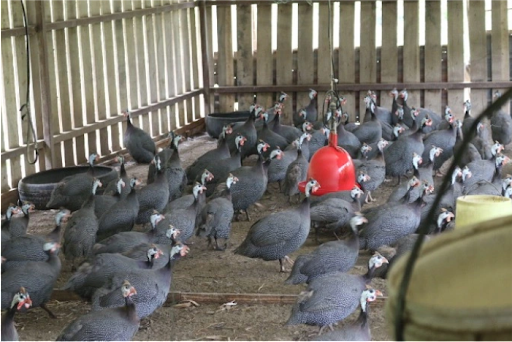The commercial farming of guinea fowls is recently gaining popularity in Kenya owing to their unique ornamental value.
The birds are raised mainly for their meat and eggs. Their waste also makes good manure which is used on the farm to boost soil fertility.
Nicholas, a farmer in Eldoret, is among the few farmers raking a fortune from the venture.
Speaking to Aim Agriculture, the farmer revealed he started with chicken but costly production forced him to divert to ornamental birds as they are cheap to manage.
”Compared to chicken, the white guinea fowls take less feed almost half of what chickens consume. This breed also fetches better prices compared to the doted ones,’’ he said.
His farm in Eldoret hosts thousands of white Guinea fowls. Nicholas explains that the white guinea fowls are the real deal as many breeders prefer them to the dotted ones, which are considered noisy.
Shamir Odhiambo: Why ornamental birds are more profitable than chicken farming
According to the farmer, when properly fed, the birds take nine months to start laying and upto one year when on free range.
”The white guinea fowls will give you 60-70 eggs each per season, compared to the dotted ones,’’ he says adding that the birds lay twice a year.
Another advantage of the birds, according to Nicholas, is a low mortality rate compared to chickens.
He sells a mature white guinea fowl for Sh4,500 each and Sh9,000 per pair. With 32 pairs, the farmer eyes Sh288,000.
He advises farmers intending to venture into guinea fowl farming to be patient with the laying season and feed the bird well.
Major species of guinea fowls reared in Kenya include the red wattle helmet guinea fowl, blue wattle helmeted guinea fowl, and the vulturine or bald-headed guinea fowl.
A farmer intending to venture into the agribusiness has to get a permit from the Kenya Wildlife Services with the license going for Sh1,500, and it is renewable every year.
Common diseases that affect the birds are fowl pox and Newcastle. Deworming should be done after every three months to keep them free of worms.










